Welcome to DU!
The truly grassroots left-of-center political community where regular people, not algorithms, drive the discussions and set the standards.
Join the community:
Create a free account
Support DU (and get rid of ads!):
Become a Star Member
Latest Breaking News
General Discussion
The DU Lounge
All Forums
Issue Forums
Culture Forums
Alliance Forums
Region Forums
Support Forums
Help & Search
General Discussion
Related: Editorials & Other Articles, Issue Forums, Alliance Forums, Region ForumsNPR: Unfit For Work
http://apps.npr.org/unfit-for-work/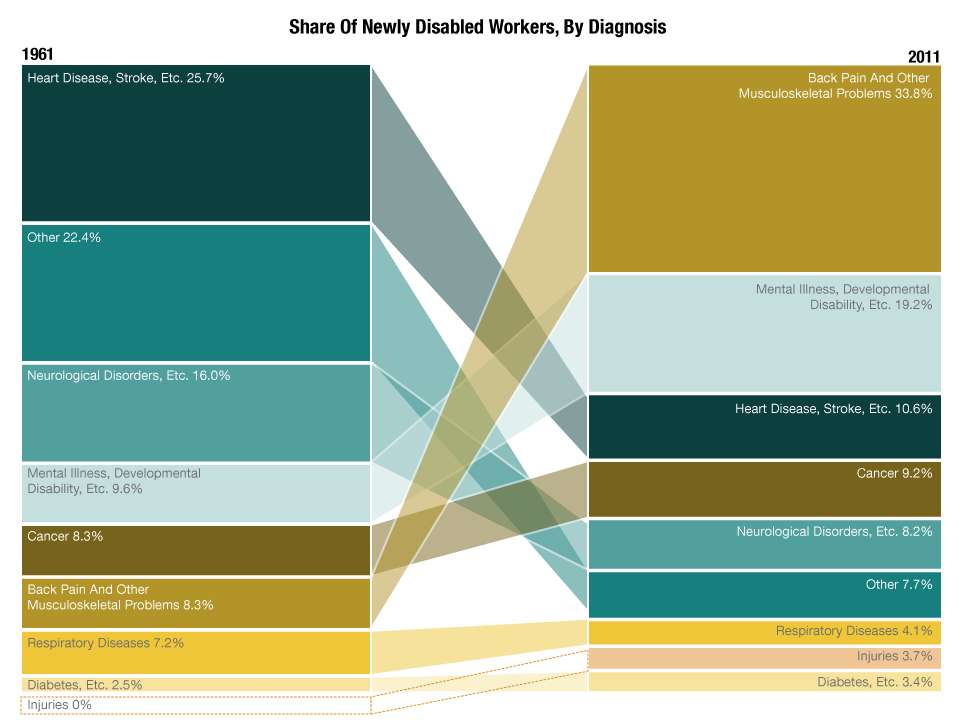
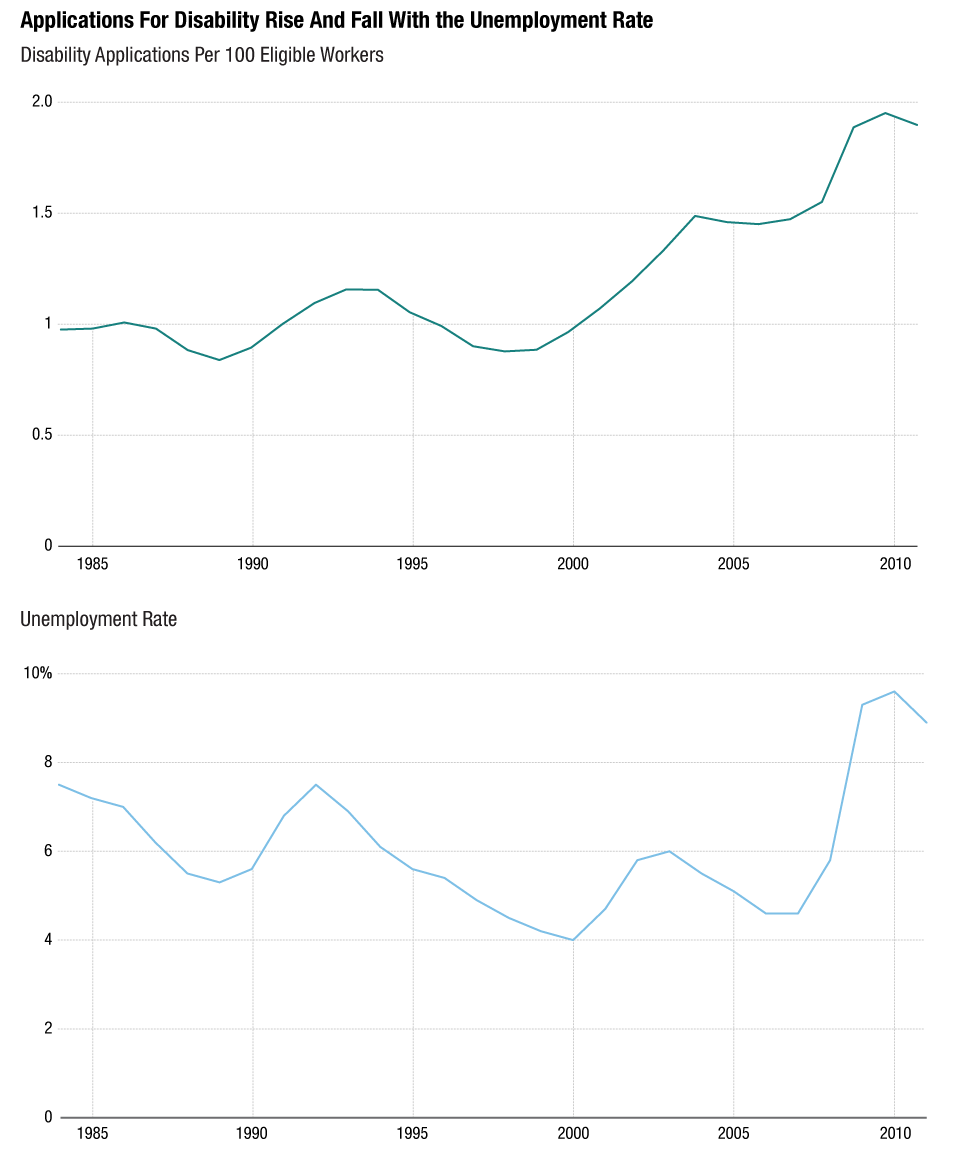
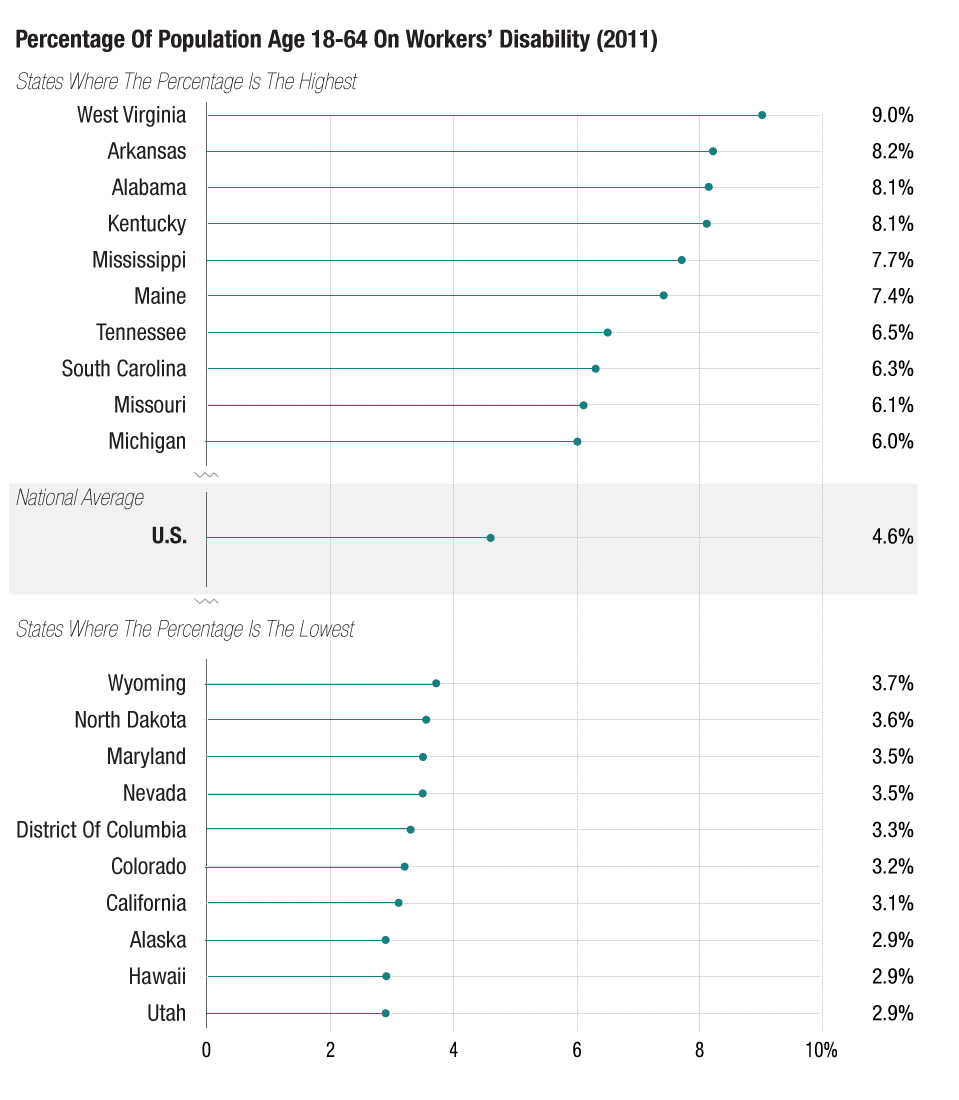
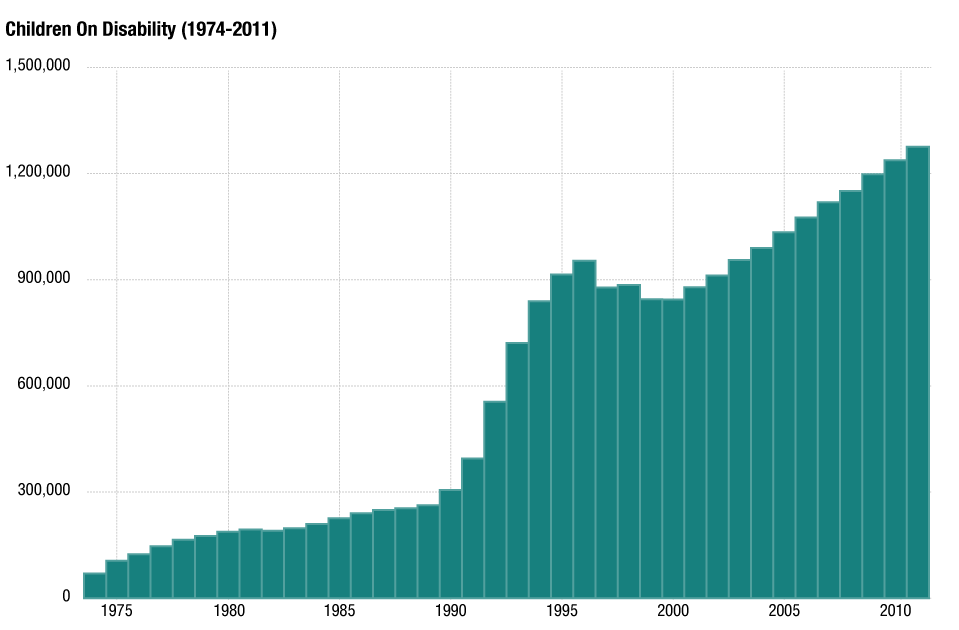
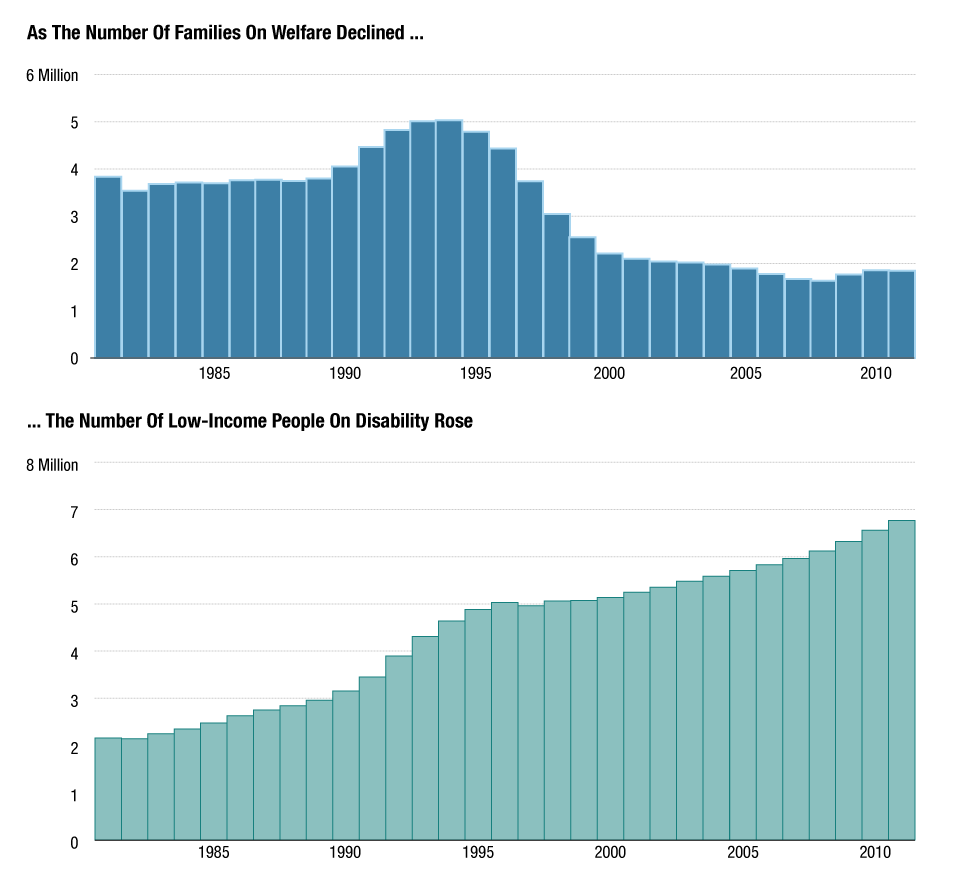
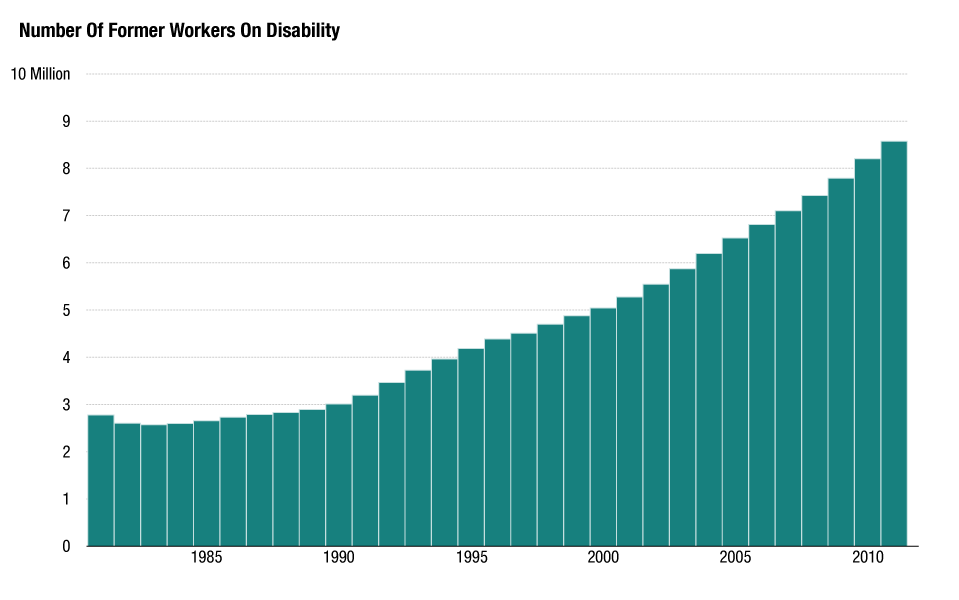
NPR report excerpt #1
A person on welfare costs a state money. That same resident on disability doesn't cost the state a cent, because the federal government covers the entire bill for people on disability. So states can save money by shifting people from welfare to disability. And the Public Consulting Group is glad to help.
PCG is a private company that states pay to comb their welfare rolls and move as many people as possible onto disability. "What we're offering is to work to identify those folks who have the highest likelihood of meeting disability criteria," Pat Coakley, who runs PCG's Social Security Advocacy Management team, told me.
The company has an office in eastern Washington state that's basically a call center, full of headsetted women in cubicles who make calls all day long to potentially disabled Americans, trying to help them discover and document their disabilities:
"The high blood pressure, how long have you been taking medications for that?" one PCG employee asked over the phone the day I visited the company. "Can you think of anything else that's been bothering you and disabling you and preventing you from working?"
The PCG agents help the potentially disabled fill out the Social Security disability application over the phone. And by help, I mean the agents actually do the filling out. When the potentially disabled don't have the right medical documentation to prove a disability, the agents at PCG help them get it. They call doctors' offices; they get records faxed. If the right medical records do not exist, PCG sets up doctors' appointments and calls applicants the day before to remind them of those appointments.
PCG also works very, very hard to make the people who work at the Social Security happy. Whenever the company wins a new contract, Coakley will personally introduce himself at the local Social Security Administration office, and see how he can make things as easy as possible for the administrators there.
"We go through even to the point, frankly, of do you like things to be stapled or paper-clipped?" he told me. "Paper clips wins out a lot of times because they need to make photocopies and they don't want to be taking staples out."
There's a reason PCG goes to all this trouble. The company gets paid by the state every time it moves someone off of welfare and onto disability. In recent contract negotiations with Missouri, PCG asked for $2,300 per person. For Missouri, that's a deal -- every time someone goes on disability, it means Missouri no longer has to send them cash payments every month. For the nation as a whole, it means one more person added to the disability rolls.
NPR report excerpt # 2
Jahleel Duroc (pictured above) is gap-toothed, 10 and vibrating with enthusiasm. He's excited to talk to someone new, excited to show me his map of his neighborhood in the Bronx. He's disabled in the eyes of the government because he has a learning disability.
"I like school," he told me. "My favorite periods are math and science and art, and lunch and recess and snack … social studies and writing are my favorite."
His favorite thing about school, in other words, is everything.
When you are an adult applying for disability you have to prove you cannot function in a "work-like setting." When you are a kid, a disability can be anything that prevents you from progressing in school. Two-thirds of all kids on the program today have been diagnosed with mental or intellectual problems.
Jahleel is a kid you can imagine doing very well for himself. He is delayed. But given the right circumstances and support, it's easy to believe that over the course of his schooling Jahleel could catch up.
Let's imagine that happens. Jahleel starts doing better in school, overcomes some of his disabilities. He doesn't need the disability program anymore. That would seem to be great for everyone, except for one thing: It would threaten his family's livelihood. Jahleel's family primarily survives off the monthly $700 check they get for his disability.[4]
Jahleel's mom wants him to do well in school. That is absolutely clear. But her livelihood depends on Jahleel struggling in school. This tension only increases as kids get older. One mother told me her teenage son wanted to work, but she didn't want him to get a job because if he did, the family would lose its disability check.
I haven't taken a survey or anything, but I'm guessing a large majority of Americans would be in favor of some form of government support for disabled children living in poverty. We would have a hard time agreeing on exactly how we want to offer support, but I think there are some basic things we'd all agree on.
Kids should be encouraged to go to school. Kids should want to do well in school. Parents should want their kids to do well in school. Kids should be confident their parents can provide for them regardless of how they do in school. Kids should become more and more independent as they grow older and hopefully be able to support themselves at around age 18.
The disability program stands in opposition to every one of these aims.
Full NPR report here:
http://apps.npr.org/unfit-for-work/
InfoView thread info, including edit history
TrashPut this thread in your Trash Can (My DU » Trash Can)
BookmarkAdd this thread to your Bookmarks (My DU » Bookmarks)
4 replies, 1775 views
ShareGet links to this post and/or share on social media
AlertAlert this post for a rule violation
PowersThere are no powers you can use on this post
EditCannot edit other people's posts
ReplyReply to this post
EditCannot edit other people's posts
Rec (1)
ReplyReply to this post
4 replies
 = new reply since forum marked as read
Highlight:
NoneDon't highlight anything
5 newestHighlight 5 most recent replies
= new reply since forum marked as read
Highlight:
NoneDon't highlight anything
5 newestHighlight 5 most recent replies
NPR: Unfit For Work (Original Post)
aaaaaa5a
Apr 2013
OP
I've seen more of the downside of the SSI than an upside. The money is not being used to
MichiganVote
Apr 2013
#1
MichiganVote
(21,086 posts)1. I've seen more of the downside of the SSI than an upside. The money is not being used to
support the kids with add on therapies. Its simply being used to support families in need. In the case of people who adopt kids with Special needs, the families have adoption subsidies as well as SSI. When the money is used to benefit the kids then its well worth it. But often the kids already qualify for Medicaid and for Community services so the need for additional funds is just not there.
We need better screening for kids and their needs. As a default poverty program it is a failure.
aaaaaa5a
(4,667 posts)3. I agree. I found the report about the disabled children most disheartening. NT
enough
(13,256 posts)2. It's interesting how many of these stories questioning Disability
seem to be popping up these days.
aaaaaa5a
(4,667 posts)4. There does seem to be a lot of them recently.
I think its because as we examine SS, Medicare, Medicaid etc., there seems to be yet another leg of the barstool that we are leaving out. That of course is disability. Clearly there are some people who have significant needs. But we would be crazy to think some are not just abusing the system.
I think we are going to see even more of these stories in the future.